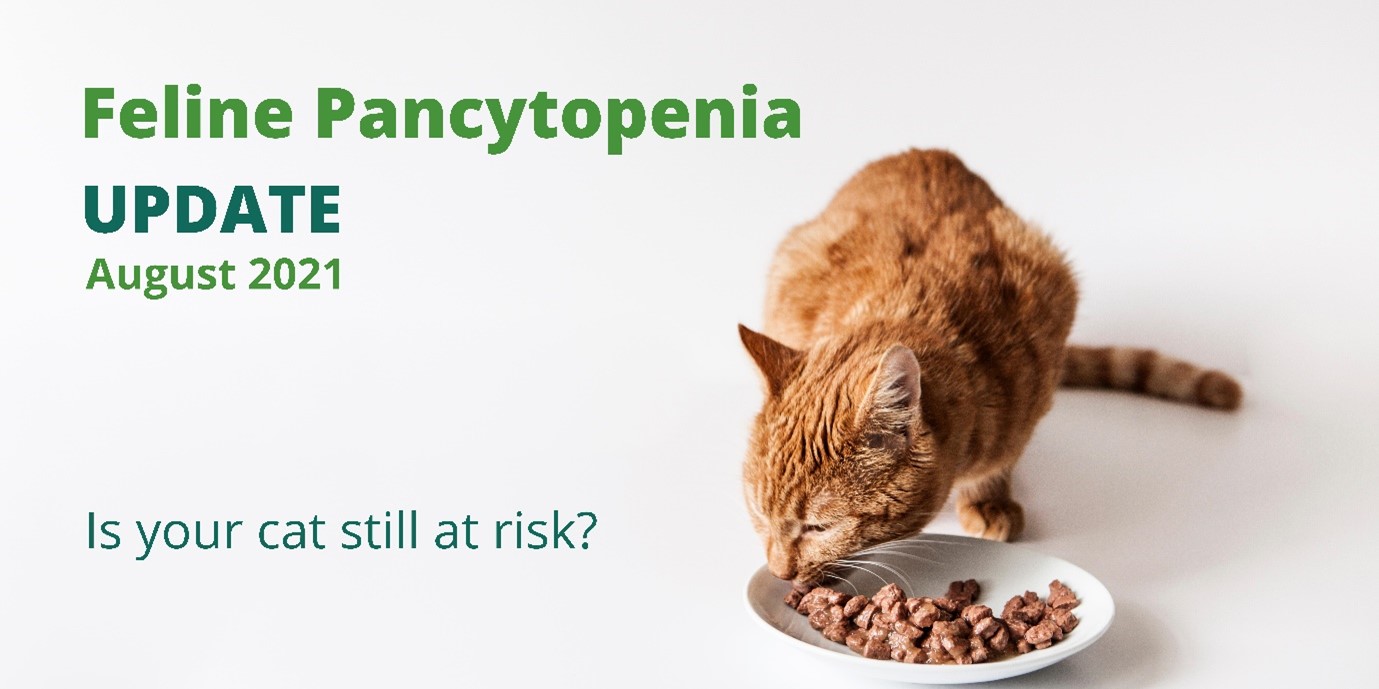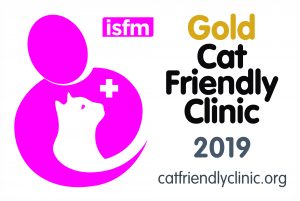UK vets report shows feline cases peaked in June, but cat owners should still be cautious.

Back in June, a number of cat foods were recalled by The Food Standards Agency (FSA) due to a potential link to a deadly cat disease. An outbreak of feline pancytopenia has resulted in 539 known infections to date with a survival rate of just 36.5%.
From a high of 270 cases of known infections during June, the number has rapidly decreased to around 7 cases per week at the start of August. This would be expected as the potential source of the infection has been recalled from the stores. But the definitive reasons for the outbreak of pancytopenia is still under investigation.
What is feline pancytopenia?
Pancytopenia is a rare illness where the number of blood cells rapidly decrease, causing serious illness.
Cats with this condition may seem more tired than usual and may go off their food. One of the first more specific signs is bleeding from the mouth, nose, or bowel. In very severe cases, excessive blood loss can lead to collapse.
The Royal Veterinary College is assisting the FSA and collecting data from practising veterinarians as part of their on-going investigations, as well as testing cat food products associated with affected and unaffected cats to determine the significance of these findings.
The products associated with the outbreak and which have been withdrawn from Pets At Home and Sainsbury’s include:
- the Sainsbury’s Hypoallergenic Recipe range
- Pets at Home’s AVA range
- Applaws Cat Dry products
An updated list of recalled cat foods can be found at the end of this blog.
The cause for the recall is attributed to mycotoxins which are naturally occurring toxins produced by certain moulds.
What are mycotoxins?
Mycotoxins are widely found in some types of feed and food and do not, in themselves, indicate they are the cause of feline pancytopenia.
They can grow on a variety of different crops (e.g. grains and vegetables) before or after harvest and foodstuffs including cereals, nuts, spices, dried fruits, apple juice and coffee, often under warm and humid conditions. These mycotoxins cause apoptosis and/or necrosis in bone marrow, gastrointestinal cells and lymphoid tissue resulting in pancytopenia and gastrointestinal signs. Cats are particularly sensitive
The Food Standards Agency (FSA) issued a statement stating that mycotoxins have been identified in some of the recalled food samples manufactured by Fold Hill Foods. Investigations continue undertaking wider sampling and also broader screening for any possible toxins.
What to do if you are worried

Anyone who is worried about their feline companion should seek veterinary advice.
If your cat has been eating a recalled brand, do not feed your cat any more of this food and contact the specific manufacturer for more information or your vet for advice. You could discuss with your vet whether you would like a blood test performed looking at the levels of red and white blood cells and platelets in your cat’s blood as decreases in these levels are seen if your cat is affected with pancytopenia.
Full list of recalled food:
Sainsbury’s:
– Sainsbury’s Hypoallergenic Recipe complete dry cat food with salmon 1+years 800g
– Sainsbury’s Hypoallergenic Recipe complete dry cat food with chicken 1+years 800g
Pets at Home:
– Ava Kitten Chicken 300g and 2kg
– Ava Adult Chicken 300g, 2kg, 4kg
– Ava Adult Fish 2kg
– Ava Mature Chicken 7+ 2kg and 4kg
– Ava Adult Fish 2kg
– Ava Mature Chicken 7+ 2kg and 4kg
– Ava Senior Chicken 12+ 2kg
– Ava Sensitive Skin & Stomach 1.5kg
– Ava Weight Management 1.5kg
– Ava Hairball 1.5kg
– Ava Oral Care 1.5kg
– Ava British Shorthair 1.5kg
– Ava Persian 1.5kg
– Ava Maine Coon 1.5kg
Applaws products: (best before date all dates with a reference code of GB218E5009)
– Applaws Cat Dry Chicken 400g, 2kg and 7.5kg
– Applaws Cat Dry Senior Chicken 400g, 2kg and 7.5kg
– Applaws Cat Chicken & Salmon 400g, 2kg and 7.5kg
– Applaws Kitten Dry Chicken 400g, 2kg and 7.5kg
– Applaws Cat Dry Chicken & Lamb 400g, 2kg and 7.5kg
– Applaws Cat Dry Chicken & Duck 400g, 2kg and 7.5kg
– Applaws Cat Dry Ocean Fish 350g, 1.8kg and 6kg
Applaws is sold in various pet food shops as well as Amazon.
How can I find out more information?
The RVC is updating their news page regularly as more information becomes available. Read their latest update here.
Search Blog Articles
Blog Categories
- Advice From Your Vets (118)
- Kittens (6)
- Pet Healthcare (26)
- Puppies (17)
- Seasonal Tips (10)
- VIP Healthcare Plans (8)
- Covid-19 News (15)
- Weekly News (63)
Like Us On Facebook
Recent Posts
Archives
- May 2024
- October 2023
- July 2023
- June 2023
- March 2023
- December 2022
- September 2022
- April 2022
- December 2021
- November 2021
- October 2021
- September 2021
- August 2021
- July 2021
- June 2021
- May 2021
- April 2021
- March 2021
- February 2021
- January 2021
- December 2020
- November 2020
- October 2020
- September 2020
- August 2020
- July 2020
- June 2020
- May 2020
- April 2020
- March 2020
- February 2020
- January 2020
- December 2019
- November 2019
- October 2019
- September 2019
- August 2019
- July 2019
- June 2019
Join our surgery by registering your pet online Register now
What Our Clients Say
Jack Billing
Byron Watson
Sharon And Michael
Amanda
Miss M And Dusty




